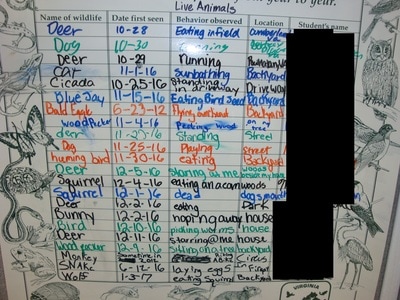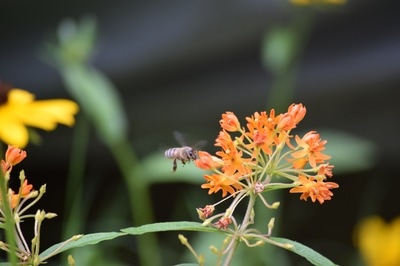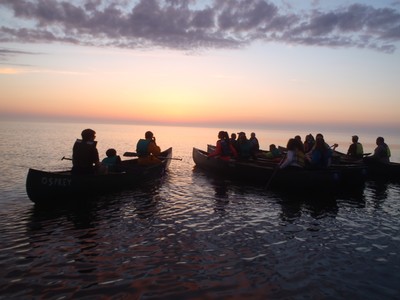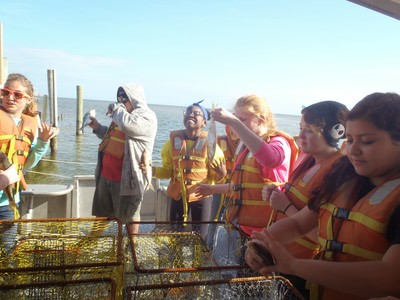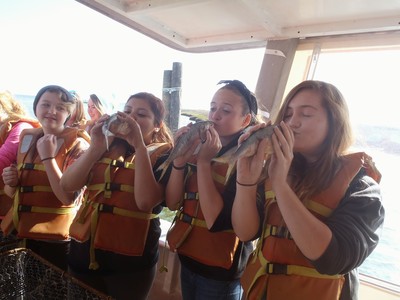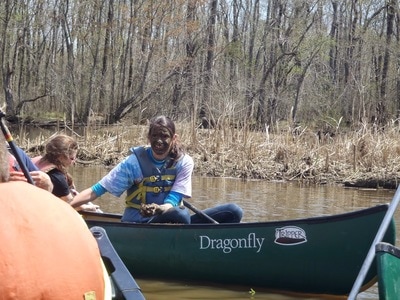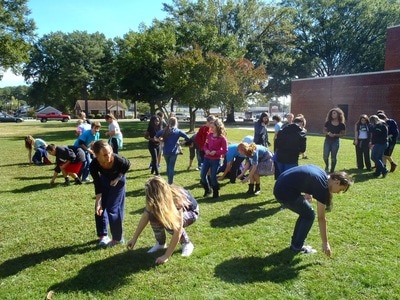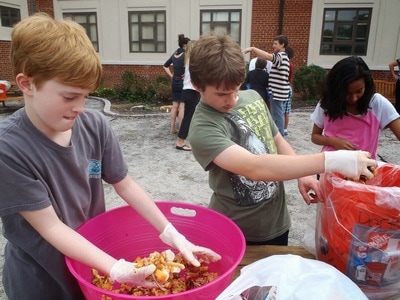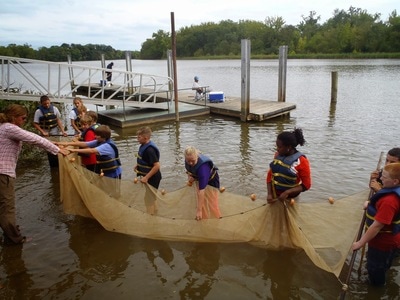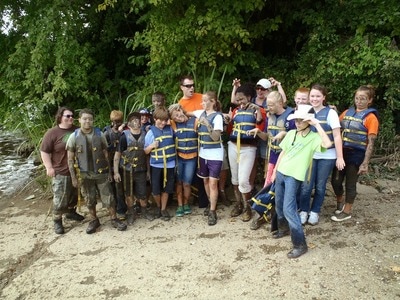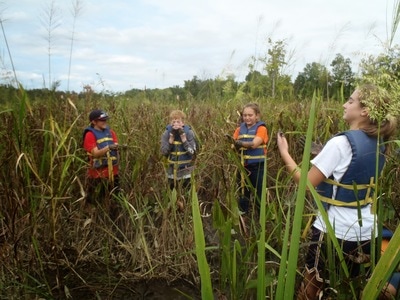Students Active and Engaged
"In the end, we will save only what we love. We will love only what we understand, and we will understand only what we are taught."
-- Baba Dioum, Senegalese conservationist
This quote explains my philosophy for introducing students to the world around them. I lead students on field trips out "into the field". Every year, at least 60 students embark on canoe trips, and 20 to 30 students take an overnight trip to the Chesapeake Bay. These trips are run by the Chesapeake Bay Foundation, and emphasize the importance of the Chesapeake Bay on the daily lives of students in Colonial Heights, who in turn greatly affect the Chesapeake Bay (and it's watershed). Below is an introduction video shown to parents of students interested in attending the overnight trip.
-- Baba Dioum, Senegalese conservationist
This quote explains my philosophy for introducing students to the world around them. I lead students on field trips out "into the field". Every year, at least 60 students embark on canoe trips, and 20 to 30 students take an overnight trip to the Chesapeake Bay. These trips are run by the Chesapeake Bay Foundation, and emphasize the importance of the Chesapeake Bay on the daily lives of students in Colonial Heights, who in turn greatly affect the Chesapeake Bay (and it's watershed). Below is an introduction video shown to parents of students interested in attending the overnight trip.
Local Wildlife, Local Impact
Every semester, students are challenged to explore the outdoors and share their observations with the class. I have also taken students on a field trip to a local brownfield (unused old industrial site - in this case a dump) to explore the impact of human use on the environment. These activities are incorporated into the broader classroom picture as students begin to think of ways they can positively impact the world.

